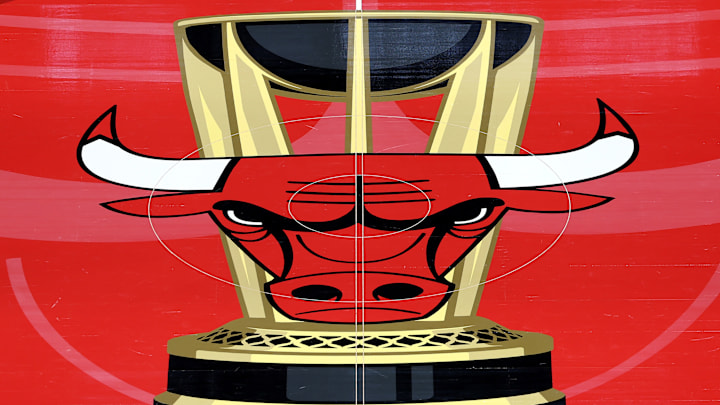The new Collective Bargaining Agreement (CBA) has ostensibly made things more difficult for NBA Front Offices. From the intricate rules to the strict stipulations, teams have been in for a learning curve over the past two years. The CBA was implemented in 2023, ahead of the 2023-24 offseason, ushering in major changes league-wide.
While salary caps and hard caps remain in play, new regulations have been implemented to penalize teams above the newly administered salary cap aprons. This season, the salary cap is set at $140.588 million; the luxury tax is $170.814 million; the first apron is $178.132 million, and the second apron is $188.931.
The first apron restrictions are as follows: teams cannot acquire a player in a sign-and-trade if that player's salary keeps them above the first apron; teams cannot sign a player waived during the regular season whose salary was over the $12.8 million midlevel exception; and salary matching in trades must be within 110 percent, rather than 125 percent for teams not above the first apron.
The second apron is far more strict. First and foremost, second-apron teams cannot make trades in which they take back more salary than they send out. The rest of the restrictions are as follows: teams cannot use a trade exception generated by aggregating the salaries of multiple players; teams cannot include cash in a trade; teams cannot use a trade exception generated in a prior year; first-round picks seven years out cannot be traded; and a team's first-round pick is moved to the end of the first round if they remain in the second apron for three out of five seasons.
The Bulls' payroll
Player | 2024-25 | 2025-26 | 2026-27 | 2027-28 | 2028-29 | Total Guarantees |
|---|---|---|---|---|---|---|
Zach LaVine | $43,031,940 | $45,999,660 | $48,967,380 (PO) | $89,031,600 | ||
Lonzo Ball | $21,395,348 (PO) | $21,395,348 | ||||
Nikola Vucevic | $20,000,000 | $21,481,481 | $41,481,481 | |||
Patrick Williams | $18,000,000 | $18,000,000 | $18,000,000 | $18,000,000 | $18,000,000 (PO) | $72,000,000 |
Coby White | $12,000,000 | $12,888,889 | $24,888,889 | |||
Jalen Smith | $8,571,429 | $9,000,000 | $9,428,571 | $27,000,000 | ||
Josh Giddey | $8,352,367 (TO) | $8,352,367 | ||||
Ayo Dosunmu | $7,000,000 | $7,518,518 | $14,518,518 | |||
Jevon Carter | $6,500,000 | $6,809,524 (PO) | $6,500,000 | |||
Chris Duarte | $5,893,768 (TO) | $5,893,768 | ||||
Matas Buzelis | $5,195,520 | $5,455,560 | $5,715,360 (TO) | $7,584,283 (TO) | $10,651,080 | |
Dalen Terry | $3,510,480 (TO) | $5,399,118 (TO) | $8,909,598 | |||
Torrey Craig | $2,845,342 (PO) | $2,845,342 | ||||
Talen Horton-Tucker | $2,087,519 | $2,087,519 | ||||
Julian Phillips | $1,891,857 | $2,221,677 | $2,406,205 (TO) | $4,113,534 | ||
Adama Sanogo | $578,577 (TW) | |||||
DJ Steward | $578,577 (TW) | |||||
E.J. Liddell | $578,577 (TW) | |||||
Totals (If guaranteed) | $168,349,185 | $134,774,427 | $84,517,516 | $25,584,283 | $18,000,000 | $339,669,044 |
Key: Player Option (PO), Team Option (TO), Two-Way Contract (TW)
A player option allows the player to decide whether to stay with their team at a predetermined salary or become an unrestricted free agent by declining the option. Team options give the corresponding team control over its players, giving the team the ability to keep its player for an additional year at a predetermined salary or allowing the player to enter unrestricted free agency by declining the option.
Two-way contracts allow players to split time between the G-League and the NBA. Players on two-way contracts can play up to 50 games in the NBA. The salary for a two-way player is $578,577, which is half of the rookie minimum contract.
Chicago's salary cap situation explained
At $168.3 million, the Bulls are a tick under the $170.8 million luxury tax line and comfortably under the $178.1 first-apron. Chicago ranks 22nd in the league in total salary, $27.7 million over the "soft" salary cap. However, Chicago is hard-capped for the 2024-25 season—meaning Chicago is prohibited from exceeding the first apron. The hard cap is because the Bulls used the non-taxpayer mid-level exception to sign Jalen Smith in the offseason.
For instance, in a hypothetical trade, the Bulls are only able to take back $7.5M more than the salary they are sending out if said departed player makes between $7.5 and $29 million. However, if Chicago sends a player who earns above or below the previously mentioned range, the Bulls can receive a player who makes up to roughly $10 million (the difference between Chicago's total salary and the first-apron)
Moving onto the players, several Bulls cannot be traded until after a certain date. Smith and Talen Horton-Tucker are the most notable players who cannot be traded until after December 15. Patrick Williams is the only other notable Bull with a trade restriction set for January 15.
Furthermore, the Bulls carry two trade exceptions: DeMar DeRozan's $17.5 million exception, which expires in early July, and Alex Caruso's $2.872 million exception, which expires on June 22. Trade exceptions allow teams under the first-apron to take back more than $250,000 in salary in any given trade.
